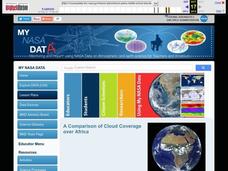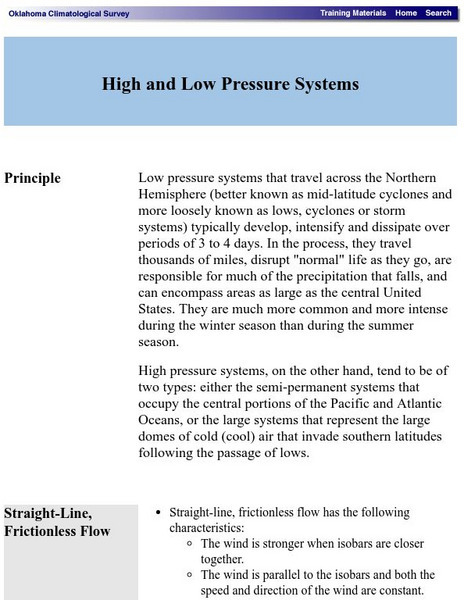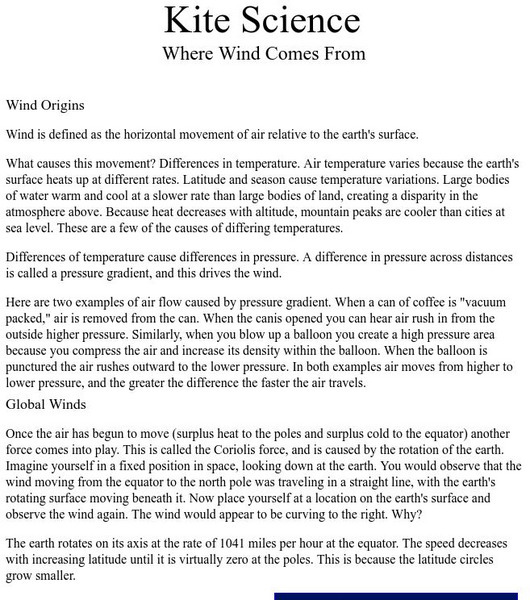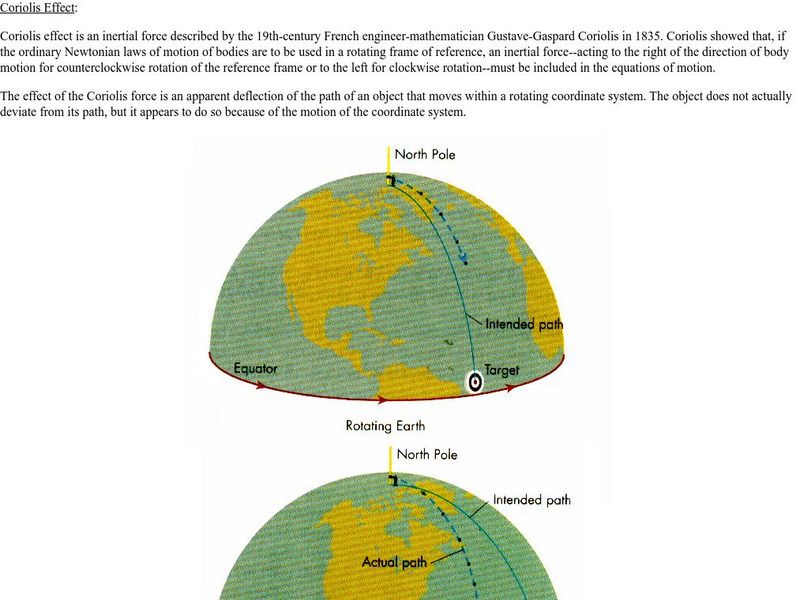Curated OER
Oceans: Water, Water Everywhere. . . but Only on the Earth!
It's not long, but it's thorough! This PowerPoint takes 4th - 8th grade earth scientists deeper into the oceans. They learn about tide and current activity and the forces that drive them. They also discover how wind and the rotation of...
Curated OER
A Comparison of Cloud Coverage over Africa
Students identify different climate regions and local weather patterns. In this cloud coverage lesson plan students use NASA satellite data and import it into Excel.
Curated OER
Faking It
Middle school earth scientists describe the behavior of the Coriolis force. They compare and contrast conditions under which the Coriolis force has a significant impact with conditions under which it has very little. They model the...
Curated OER
Upwelling - Cold One Day, Warm Another?
Discuss with your oceanographers what forces cause nearshore upwelling and downwelling. Display a line of wind vectors alongside a graph of the temperatures so that they can discover whether or not they are related. Discussion questions...
Curated OER
Does Santa Claus use the Coriolis Force to Travel East?
Students are given a visual demonstration of the Coriolis Force in the Northern Hemisphere. They are encouraged to find locations around the globe and try to predict what the weather circulation patterns might be like.
Curated OER
#24 Rotating Frames of Reference in Space and on Earth
High schoolers explore rotating frames of reference, focusing on the weightless environment in space and the Coriolis force.
University of Illinois
University of Illinois Urbana Champaign: Forces and Winds
What causes wind? How does wind affect our weather? This website is neatly organized into topics about pressure, gradient force, Coriolis force, geostrophic wind, gradient wind, friction, boundary layer wind, and sea and land breezes....
Oklahoma Mesonet
University of Oklahoma: High and Low Pressure
This University of Oklahoma meteorology tutorial explores both high and low pressure systems--how they form and the different forms they take.
Other
Kites as Education: Wind Origins
This "kite science" site offers information on wind and the atmospheric conditions that cause it. From "Principles of Aeronautics."
Libre Text
Libre Text: Geostrophic Balance
Geostrophic balance is arguably the most central concept in physical oceanography and dynamical meteorology. A key feature of geostrophic balance is that rather than flowing from high to low pressure, the fluid actually moves parallel to...
Idaho State University
Global Wind Systems [Pdf]
A great description of the global scale circulation and heat energy. Discusses a single-cell model, a three-cell model, jet streams and more.
University of Oregon
University of Oregon: Coriolis Effect
This site from the University of Oregon provides a great explanation of the Coriolis Effect and then gives several chart type examples to help the understanding of it.
Geography 4 kids
Geography4 kids.com: Coriolis Spinning Around the Earth
An overview of the Coriolis Force, an effect on wind due to the rotation of Earth.












![Global Wind Systems [Pdf] Website Global Wind Systems [Pdf] Website](https://d15y2dacu3jp90.cloudfront.net/images/attachment_defaults/resource/large/FPO-knovation.png)

